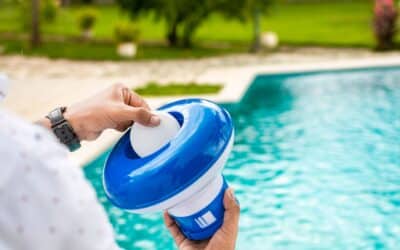Common mistakes in how parents hydrate their babies often lead to avoidable health issues. Proper hydration is crucial for infants, as their bodies require adequate fluids to support rapid growth and development. Today, we address these errors to help caregivers ensure their infants remain healthy and well-hydrated.
Not Recognizing the Signs of Dehydration
Parents often overlook the critical nature of recognizing signs of dehydration in their infants. These common mistakes can lead to complications, affecting an infant’s health significantly. Knowledge of the symptoms at various severity levels is vital for timely intervention and care.
Mild Dehydration
Babies display subtle hints when they experience mild dehydration. These include fewer wet diapers than usual or a slightly parched mouth. Parents should monitor these signs closely to prevent the situation from worsening.
Moderate Dehydration
Moderate dehydration presents more noticeable symptoms, such as lethargy, dry skin, and a noticeable decrease in tear production during crying. These signs indicate a need for immediate action to rehydrate the infant and possibly require medical consultation.
Severe Dehydration
In cases of severe dehydration, infants show alarming symptoms such as sunken eyes, an extremely dry mouth, and a significant lack of energy. These symptoms demand urgent medical attention to prevent severe outcomes and ensure the infant’s well-being.

Misinterpreting Baby’s Thirst Cues
One common mistake parents make is misinterpreting a baby’s thirst cues for signs of hunger or general fussiness. Identifying thirst is crucial for ensuring adequate hydration, especially in young infants.
Smacking or Licking Lips
Parents often think that when a baby smacks or licks their lips, it indicates a readiness to eat. While sometimes this can be true, these actions often suggest that the baby needs hydration. Observing the consistency of these cues to recent feedings can help distinguish between hunger and thirst.
Another mistake involves not responding to these signals quickly enough. A delay can exacerbate the baby’s desire for hydration, increasing fussiness. Promptly offering a small amount of water or milk helps determine if thirst is the cause.
Crying
Crying is a frequent signal that parents associate with discomfort or the need for food. However, it also serves as a late indicator of thirst. When babies cry, it typically means they already experience significant thirst.
Parents should consider the timing of the baby’s last drink when they hear crying. Offering fluids before food can be smart if it has been a while since the last hydration. This approach ensures the baby’s needs for hydration are met before assuming hunger.
Restlessness or Irritability
Restlessness or irritability often leads parents to try multiple comfort strategies, misreading them as signs of tiredness or colic. However, these behaviors may stem from an unmet need for fluids. When these moods appear without clear reasons, it is essential to evaluate hydration as a potential cause.
To address this, parents can offer a drink during these moments of apparent discomfort to check if the baby’s mood improves with hydration. If the restlessness subsides after a drink, thirst likely causes irritability. This method helps parents respond more accurately to their baby’s actual needs.
Overlooking the Need for Water After Six Months
Many parents make the common mistakes of overlooking the need for water after a baby reaches six months of age. Misconceptions about breastfed babies’ hydration needs can lead to inadequate water intake.
Breastfed Babies Do Not Need Water
A prevalent myth is that breastfed babies do not need additional water, even after they turn six months old. This notion disregards babies’ need for supplementary hydration after six months, especially as they start eating solid foods. Breast milk alone does not satisfy all hydration needs past this age.
Pediatric advice now directs parents to introduce modest amounts of water as complementary to breastfeeding after the baby is six months old. This helps infants transition to other fluid sources and supports optimal hydration as their dietary intake diversifies.
No Water Needed in Hot Climates for Breastfed Babies
Another persistent myth suggests breastfed babies do not need extra water even in hot climates. Parents may assume breast milk adjusts to meet the baby’s hydration needs, but additional water becomes critical in higher temperatures. Infants, like adults, require more fluids to maintain hydration in warmer environments.
Current guidelines recommend that parents provide limited amounts of water in hot climates along with breast milk to prevent dehydration. This reflects an understanding of babies’ increased fluid loss in higher temperatures, ensuring their hydration remains balanced and adequate.
Incorrect Amounts of Water for Babies
Understanding the correct amount of water for babies is crucial for their health and development. Too much or too little can lead to many problems, making it one of the common mistakes new parents make. Balancing a baby’s water intake based on age is essential to avoid these pitfalls.
Giving Too Much Water
One of the common mistakes for babies is too much water, which poses significant risks, especially to those under six months of age. An excess can lead to a rare but serious condition known as water intoxication, diluting the sodium in the bloodstream and potentially causing seizures, coma, and even death. Infants’ kidneys are also not mature enough to filter excess water efficiently, further exacerbating these risks.
Giving Too Little Water
Conversely, providing too little water to babies over six months old can lead to dehydration. As babies consume solid foods around this age, their water needs increase. Neglecting this need may result in constipation, heat stress, and urinary tract infections. Adequate hydration is crucial for their overall health and the efficient processing of solid foods.
Right Balance Based on Age
Finding the right balance of water intake is essential for infant health. Breast milk or formula provides sufficient hydration for babies younger than six months. After six months, parents should introduce a small amount of water to increase it as the baby grows gradually. This approach offers the hydration necessary for healthy development without overriding the baby’s natural regulatory mechanisms.
Using the Wrong Type of Water
Choosing the correct type of water for baby consumption is vital for safeguarding their health. Some common mistakes involves using unfiltered tap water directly, which might contain harmful levels of lead, nitrates, and other contaminants unsuitable for an infant’s underdeveloped immune system.
Common Misconceptions
Choosing the correct type of water for baby consumption is essential, yet many parents fall prey to common mistakes about the best options available.
Boiling Water
Parents often assume that boiling water purifies it sufficiently for baby consumption. While boiling does eliminate most pathogens, it does not remove heavy metals, nitrates, or other chemical pollutants. Therefore, relying solely on boiled tap water without testing its contents may still pose risks to a baby.
Bottled Water is the Safest Option
Another misconception surrounds bottled water being the safest option. Not all bottled water meets the necessary fluoride levels or might be too high in sodium, which can be problematic for infants. Additionally, some brands simply bottle-treated tap water, which may not offer any significant purity advantage over well-filtered tap water.

Conclusion
Navigating the proper hydration for babies is critical to their health and development. A balance ensures that babies do not receive too much or too little water and that the water type suits their delicate systems. Common mistakes include overhydration and underhydration and misunderstandings about water purity and safety.
Parents must remain vigilant and seek information to make educated decisions about their baby’s water intake. Consult a healthcare professional to offer personalized advice, ensuring the hydration plan meets the baby’s needs. Staying informed and proactive is the best strategy for avoiding common mistakes in hydration.



